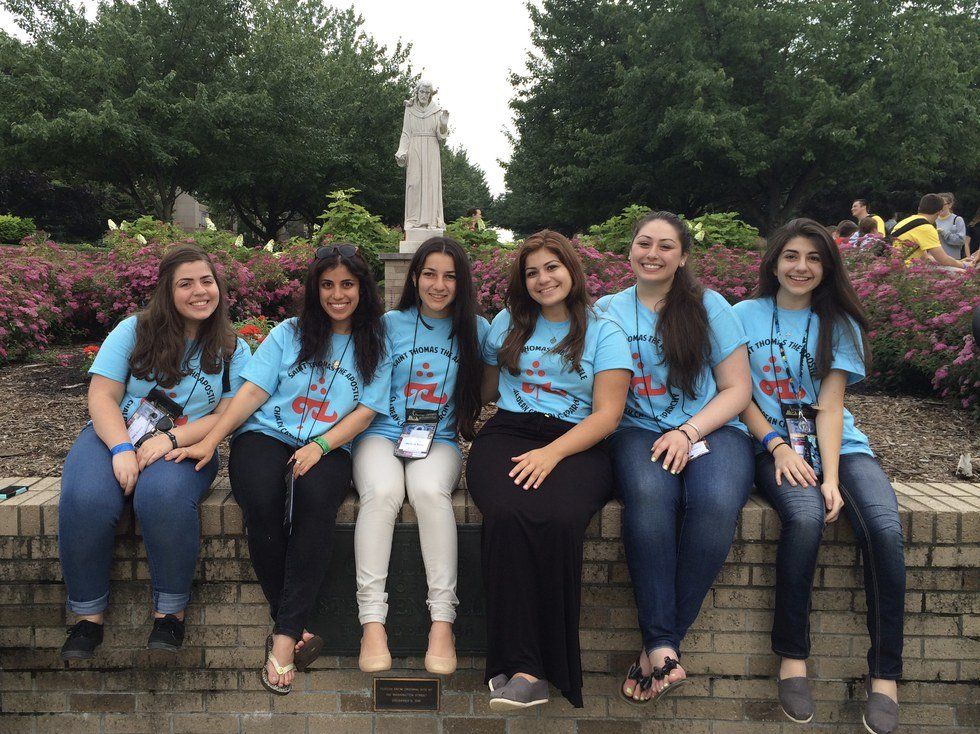In the city I was raised in, people could take one good look at me and conclude that I am Chaldean. I could stand in front of a random group of people, proclaim my last name, and be able to count on at least one person to recognize it and identify a handful of people I am related to. Everyone knew who the Chaldeans were, and what their story was.
When I moved onto a college campus, the exact opposite proved to be true. I was pleasantly surprised when someone knew what being Chaldean meant. Most of the time, I was stuck with having to awkwardly answer the question, “what’s a Chaldean?” The only reason it was awkward was because I was accustomed to everyone having at least a slight idea on our religious history. That obviously was not the case, though, and so I figured I’d address the subject officially through this article.
The Chaldean people originally resided in Iraq, and were converted to Catholicism by St. Thomas the Apostle. We are unified with the Roman Catholic Church, but we have separate Bishops and a separate Patriarch. The language that Chaldeans speak is referred to as “Chaldean”, and is most similar to Aramaic, which is the language that Jesus spoke during his time. We are not to be confused as Arabs, although most Chaldeans do speak Arabic because they were born in an Arabic country. Therefore, Chaldean was spoke solely within the households.
Due to their religious beliefs, Chaldeans are currently being persecuted against and are forced to flee from their home country. They are being targeted by ISIS, and are victims of an ethnic-cleansing crusade. ISIS has taken control over heavily populated Chaldean towns in Iraq, and they threaten execution if the Chaldeans do not convert to the Islam religion. In 2003, the population of Chaldean people in Iraq was estimated to be 1.4 million while, today, there are fewer than 500,000. Refugees are fleeing with few to no possessions, while everything they leave behind (homes and businesses) are destroyed.
Even before ISIS took control over Iraq, many Chaldeans were fleeing the country because of the prejudice they received and the wars that the country was involved in. On a personal note, my parents left Iraq sometime during the Iran/Iraq war that took place throughout the 1980’s. My grandfather abandoned everything he had accomplished so that he could set up a life in America and give his children a promising future that he knew they wouldn’t get if they remained in Iraq.
Most Chaldeans who immigrate to America reside in either the Detroit area of Michigan, San Diego area of California, and a few near Phoenix, Arizona. As noted before, Chaldeans had to abandon their businesses and were not able to take most of their possessions because they were leaving the country in secrecy (if the government were to find out that they were leaving the country, they would have voided their passports). Therefore, they had to start all over again once they settled in America.
I cannot stress enough how hard-working and dedicated I have witnessed Chaldean immigrants to be. To come to America with scarce possessions, and hardly able to speak any English, and yet still become the incredibly successful people that they are today is nothing but remarkable. Because most did not have a full education, they centered all of their work toward what they knew how to do best and, in most cases, that was to operate small businesses.
Chaldeans are incredibly family-oriented, and so most have all of their relatives within a short driving distance. On that note, our families are also relatively large compared to the average American family. One of my favorite things to be able to tell people is that I have about 40 first cousins. To live in an American society that focuses on being very individualized, I am able to respect how close I am with my family and appreciate how often my family members take each other into consideration when we make decisions about our own lives.
The culture and history associated with the Chaldean people cannot entirely or justifiably be described by a simple article. However, I hope this was able to give you a general idea of who my people are, and that if you ever get stuck with the question “what’s a Chaldean?”, you’ll be a little too ready to let them know what’s up.





















